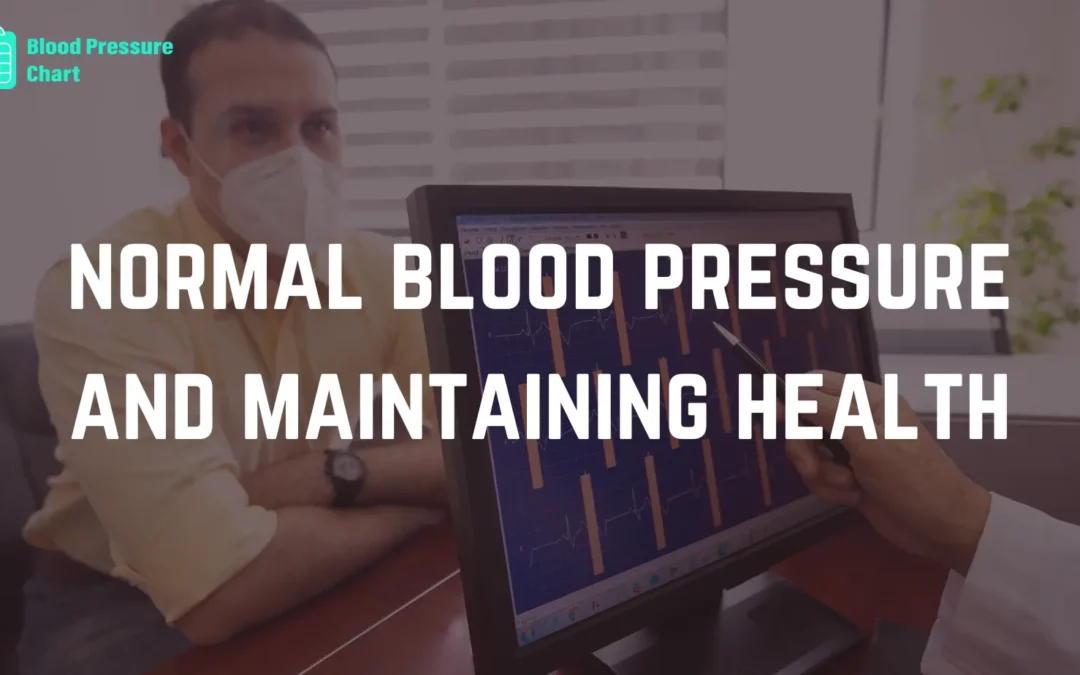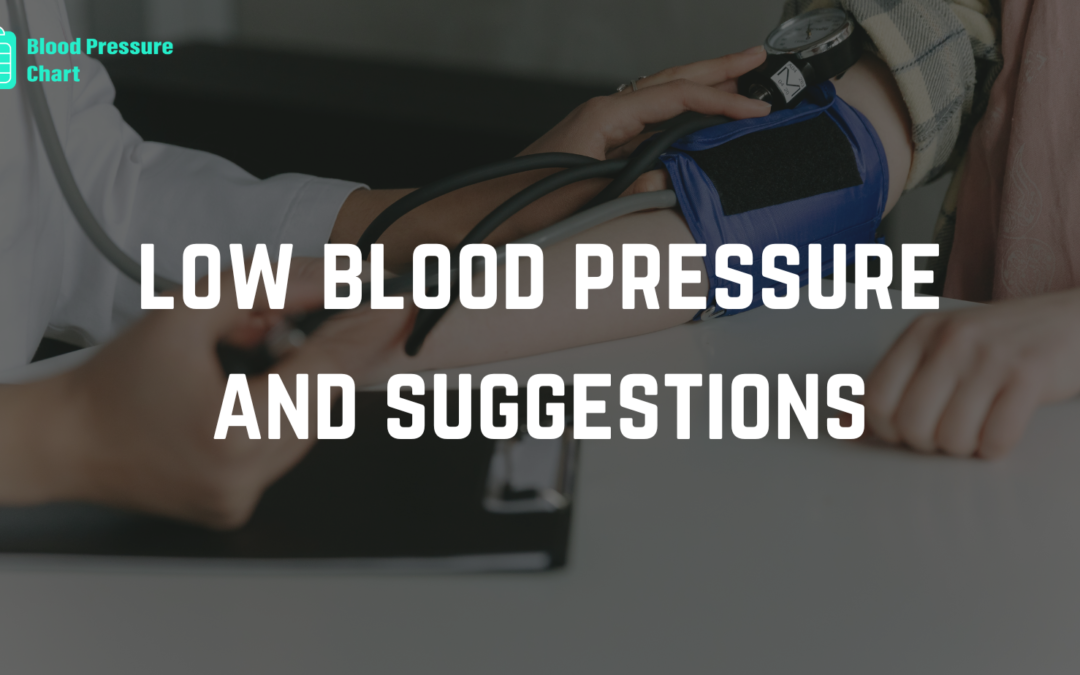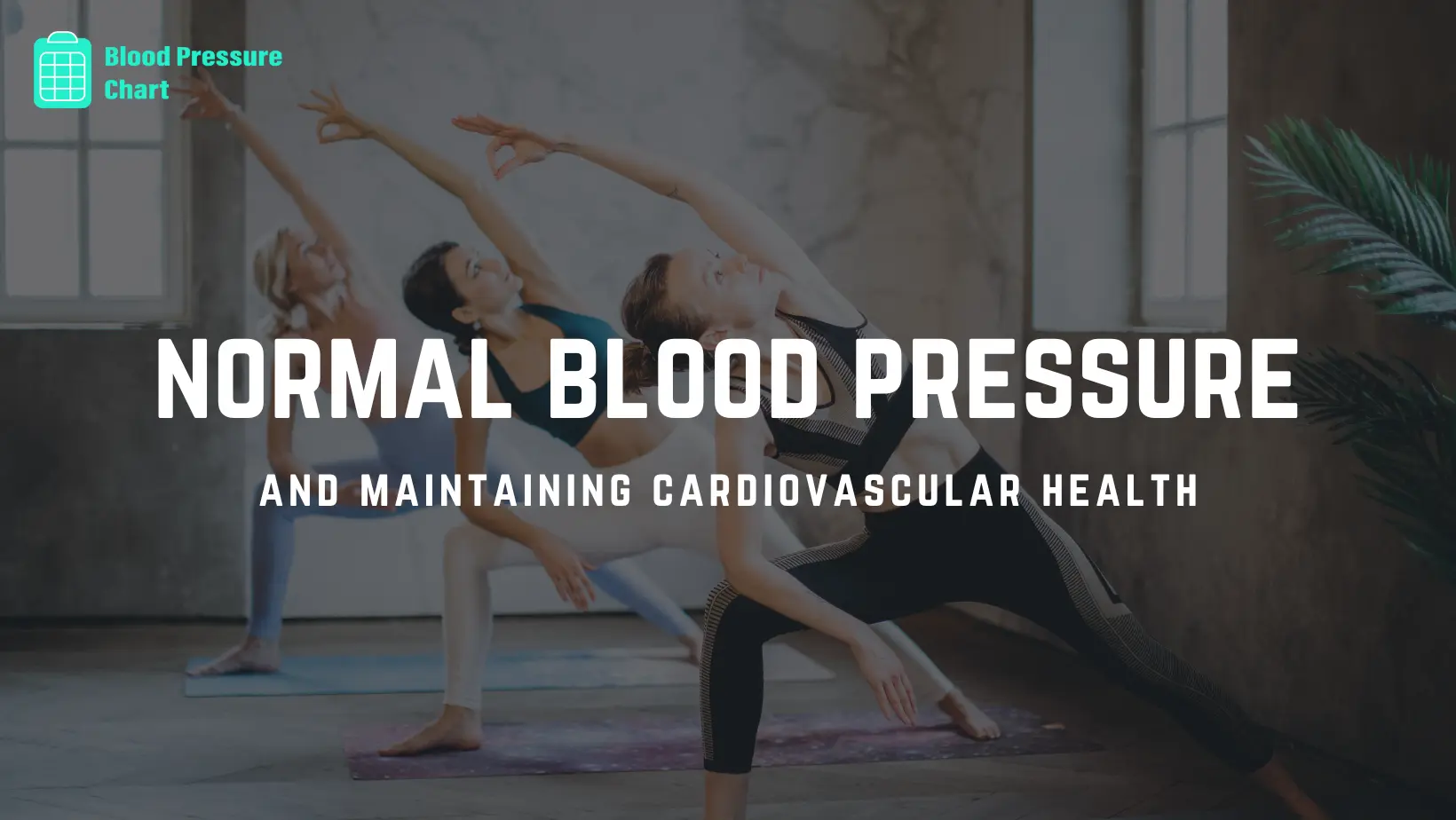High blood pressure affects millions of people worldwide yet often goes undetected until serious problems develop. Known medically as hypertension, this condition creates excessive pressure against your artery walls that can eventually damage your heart and blood...

Normal Blood Pressure: A Happy & Sad Phase
Normal blood pressure is often called the “silent guardian” of good health because it indicates your cardiovascular system is working efficiently without placing excess strain on your heart and blood vessels.
Understanding what constitutes normal blood pressure, what influences these readings, and how to maintain them within healthy ranges is essential knowledge for anyone concerned about their long-term health.
What Defines Normal Blood Pressure?
Blood pressure is always expressed using two numbers, measured in millimeters of mercury (mmHg):
Systolic pressure (top number): The pressure in your arteries when your heart beats and pumps blood
Diastolic pressure (bottom number): The pressure in your arteries when your heart rests between beats
According to medical guidelines, normal blood pressure falls below 120/80 mmHg. More specifically:
| Blood Pressure Category | Systolic Range | Diastolic Range |
|---|---|---|
| Normal | Less than 120 mmHg | Less than 80 mmHg |
| Elevated | 120-129 mmHg | Less than 80 mmHg |
| High Blood Pressure (Stage 1) | 130-139 mmHg | 80-89 mmHg |
| High Blood Pressure (Stage 2) | 140 mmHg or higher | 90 mmHg or higher |
It’s important to note that normal blood pressure isn’t precisely 120/80 mmHg – readings below this threshold are considered normal. Many healthy adults have readings in the 110-119/70-79 mmHg range.
How Normal Blood Pressure Benefits Your Body
Maintaining normal blood pressure provides numerous health benefits:
Heart Health
When your blood pressure stays in the normal range, your heart doesn’t have to work as hard to pump blood throughout your body. This reduces strain on the heart muscle and helps prevent enlargement and weakening over time.
Blood Vessel Protection
Normal blood pressure means less force pressing against artery walls. This helps prevent damage to blood vessels, reducing the risk of aneurysms, plaque buildup, and vessel narrowing.
Brain Function
Your brain receives about 20% of your body’s blood supply. Normal blood pressure ensures stable, appropriate blood flow to the brain, supporting cognitive function and reducing stroke risk.
Kidney Function
Your kidneys filter waste from your blood through a network of tiny blood vessels. Normal blood pressure helps maintain proper kidney function and prevents damage to these delicate filtering systems.
Overall Longevity
Research consistently shows that people who maintain normal blood pressure throughout life tend to live longer and experience fewer cardiovascular complications as they age.
Normal Blood Pressure Across Different Ages
Blood pressure naturally varies throughout life. Here’s what’s typically considered normal at different life stages:
Children and Adolescents
Normal blood pressure in children is determined based on age, height, and gender percentiles rather than fixed numbers. Generally:
- Newborns: Approximately 70/50 mmHg
- Infants (1-12 months): Around 90/60 mmHg
- Children (1-10 years): Gradually increases, but stays below adult values
- Adolescents: Approaches adult ranges but typically remains lower
Adults (18-64)
The standard normal reading of less than 120/80 mmHg applies to this age range. However, many factors influence individual “normal” values, including:
- Gender (men often have slightly higher readings than women until age 55)
- Physical fitness level (athletes often have lower resting blood pressure)
- Stress levels and sleep quality
- Genetics and family history
Older Adults (65+)
While the goal remains below 120/80 mmHg, medical professionals sometimes accept slightly higher readings in older adults due to natural changes in blood vessels with age. Some guidelines suggest:
- For adults 65-79: Below 130/80 mmHg may be acceptable
- For adults 80+: Below 140/80 mmHg may be acceptable in some cases
However, these higher thresholds remain controversial, as research indicates cardiovascular benefits continue with lower readings even in older age groups.
Factors That Help Maintain Normal Blood Pressure
Several lifestyle factors play crucial roles in keeping blood pressure within normal ranges:
Dietary Approaches
- Sodium intake: Limiting sodium to less than 2,300 mg daily (ideally 1,500 mg) helps maintain normal pressure
- Potassium-rich foods: Bananas, potatoes, beans, spinach, and yogurt help balance sodium’s effects
- The DASH diet: This eating pattern emphasizes fruits, vegetables, whole grains, lean proteins, and low-fat dairy
- Healthy fats: Omega-3 fatty acids from fish, nuts, and plant oils support healthy blood vessels
- Limited alcohol: No more than one drink daily for women or two for men
Physical Activity
Regular exercise strengthens your heart, improves circulation, and helps maintain normal blood pressure by:
- Improving heart efficiency so it pumps more blood with less effort
- Helping maintain healthy weight
- Reducing stress hormones that can raise blood pressure
- Improving blood vessel function and elasticity
Aim for at least 150 minutes of moderate activity weekly (like brisk walking) or 75 minutes of vigorous activity (like running).
Weight Management
Being overweight can raise blood pressure, while maintaining a healthy weight helps keep it normal. Each 10 pounds of weight loss can lower systolic pressure by approximately 5-10 mmHg in overweight individuals.
Stress Management
Chronic stress can temporarily raise blood pressure and lead to unhealthy coping behaviors. Effective stress management includes:
- Meditation and deep breathing
- Regular physical activity
- Adequate sleep (7-8 hours for most adults)
- Social connections and support
- Setting realistic expectations and boundaries
Sleep Quality
Poor sleep is linked to higher blood pressure. Prioritizing 7-8 hours of quality sleep supports normal blood pressure by:
-
- Allowing your body to regulate stress hormones
- Giving your cardiovascular system time to rest and recover
- Supporting healthy weight management
- Improving overall stress levels
How to Monitor Normal Blood Pressure
Regular monitoring helps ensure your blood pressure stays in the normal range:
Home Monitoring Tips
- Use a validated upper-arm monitor (wrist monitors are generally less accurate)
- Take readings at the same time each day
- Sit properly with back supported and feet flat on the floor
- Rest your arm on a table at heart level
- Avoid caffeine, exercise, and smoking for 30 minutes before measuring
- Take 2-3 readings one minute apart and record the average
Common Monitoring Mistakes
Avoid these errors that can affect accuracy:
- Using an incorrect cuff size
- Talking during measurement
- Having a full bladder
- Sitting without back support
- Measuring over clothing
- Taking only a single reading
When Professional Monitoring Makes Sense
While home monitoring is valuable, professional readings help:
- Establish a baseline of your normal blood pressure
- Confirm home readings for accuracy
- Provide additional context through other health metrics
- Detect early changes that might indicate developing issues
Conclusion:
Maintaining normal blood pressure throughout life is one of the most important things you can do for your long-term health. While it might not provide immediate, noticeable benefits like some other health measures, the cumulative protection it offers your heart, brain, kidneys, and other vital organs is invaluable.
The good news is that for most people, normal blood pressure can be achieved and maintained through consistent, moderate lifestyle choices rather than extreme measures. Small, sustainable changes in diet, activity, stress management, and sleep often yield better long-term results than drastic approaches that can’t be maintained.
By understanding what normal blood pressure is, regularly monitoring your readings, and implementing targeted lifestyle strategies, you can keep this vital health marker in check and reduce your risk of serious cardiovascular problems as you age.
You can check more on High Blood Pressure & Low Blood Pressure

High Blood Pressure: Causes, Effects, and Managing Your Heart Health

Normal Blood Pressure: A Happy & Sad Phase
Normal blood pressure is often called the "silent guardian" of good health because it indicates your cardiovascular system is working efficiently without placing excess strain on your heart and blood vessels. Understanding what constitutes normal blood pressure, what...

Everything about Low Blood Pressure
While high blood pressure often dominates health discussions, low blood pressure (hypotension) deserves equal attention as it can significantly impact your quality of life and overall health. This comprehensive guide explores what happens when your blood pressure...

Blood Pressure Chart
Monitor and manage your blood pressure with precision using our interactive chart for accurate readings and personalized insights.

